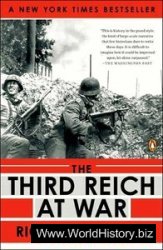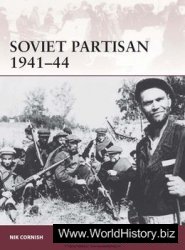This is just one of several variant forms of the ancient story. The couple are called Tristan and Isedt in some versions, and Trystan and Esyllt in others; in Richard Wagner’s famous operatic transformation they are Tristan and Isolde. In this Welsh version, which has a happy ending, they are Trystan and Esyllt.
Esyllt of the White Throat was the wife of Mark, son of Meirchion. The news came to Arthur that Trystan, son of Trallwch, had gone off with Esyllt and they were wandering together as outlaws in the Oakwood of Celidon in the North. They were alone except for Esyllt’s handmaid, who was called Golwg Hafddyd (Face Like a Summer’s Day), and Trystan’s page. The page carried pasties in a satchel and wine in a jar. They slept beneath the trees, with only leaves for bedclothes, but they were sustained by their love for each other, and by the wine and the pasties.
Mark went to Arthur to complain about Trystan’s behavior and ask Arthur to avenge the insult. Arthur hesitated, because Trystan was one of the Three Unyielding Chieftains of the Island of Britain, but Mark argued that Arthur too was insulted because Trystan was his subject and openly defted him.
Arthur called up his war-band and rode to the Wood of Celidon; he surrounded the oakwoods. Trystan lay asleep, but Esyllt could hear the sound of warriors and woke him.
Trystan was unafraid. “Many of these men are my friends: blunt Cei, angry Bedwyr, and courteous Gwalchmei.”
Even so, for safety, he set Esyllt in a hollow oak, where holly and ivy and a nearby yew hid her from view. Then he set off toward the sound of the warriors, with his sword in his hand.
He saw Mark and spoke directly to him. “Lord, we have a quarrel, you and I. Draw your sword and let us settle it.”
But Mark knew Trystan’s destiny. He understood that if he killed Trystan it would bring about his own death. He refiised to fight and called on his men to tie Trystan up and bring him before Arthur. Mark’s men did not understand the destiny that hung over Trystan and thought Mark had refused to fight out of cowardice; they refiised to act for a man who would not fight for himself So Trystan was able to walk away unhindered.
Mark went again to Arthur, who said, “I thought this was how it would be. There is only one way left. We musf send fhe besf harpers in the Island of Britain to play to Trystan from afar. As his mood softens, we shall send in poets and praise-makers to praise him. Then we shall be able to talk to him.”
This they did. The forest was filled with the sound of the harps; even the birds stopped singing to listen. Trystan summoned the harpers to him and rewarded them handsomely for their music with gold and silver. Then the poets and praise-makers came and exalted Trystan. Trystan summoned them too, and gave them gifts. To the chief song-maker he gave the circlet of gold that adorned his own neck and to the others he gave gold and silver.
Now his heart was softened, and Gwalchmei appeared before him with a message from Arthur. Trystan consented to Gwalchmei’s courteous request to visit Arthur, who bound both Trystan and Mark to keep peace with one another until the matter was resolved.
Arthur spoke to the two men separately, but neither would agree to give up Esyllt. Arthur’s judgment was that Esyllt should go with one man for as long as the leaves stayed on the trees, and to the other for as long as the leaves were not on the trees. It was for Mark, son of Meirchion, to choose first.
“Lord, this is an easy choice to make,” Mark cried happily. “I shall have Esyllt when the leaves are not on the trees. The short, dark days of winter often seem longer than the days of summer, and the nights are longer, and the time passes more slowly then.”
Arthur went into the middle of the forest to find Esyllt and report his judgment to her.
“Bless you for this judgment, my lord,” she cried.
Cei was puzzled by her reaction. He asked, “Why so, lady?”
As her answer, Esyllt sang this verse:
“Three trees there are, both good and true:
Holly and ivy and yew are they.
They keep their leaves the whole year through.
And Trystan shall have me for ever and ay. ”





 World History
World History









